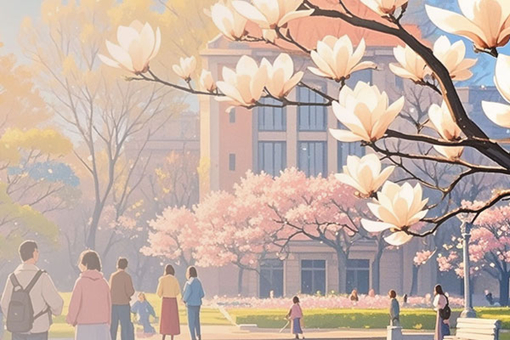Ji Xianlin, the reluctant master
By Xiao Dao | (China Daily)| Updated : 2020-02-18
Print PrintAccording to his students and colleagues, China's academic giant was always an amiable old man who wore bleached khaki suits, soft cloth shoes, and carried an old-fashioned schoolbag.
They also remember his utmost respect for people, his humility and his tenderness for little animals, especially cats.
Son to an impoverished rural family in Linqing, Shandong province, Ji was admitted to Tsinghua University in 1930 and majored in Western literature. His studies were sponsored by an uncle from Jinan, Shandong province, where he finished elementary and high school.
Five years later Ji went to Gottingen University in Germany as an exchange student, majoring in Sanskrit and lesser-known ancient languages such as Pali. The university is famous for its Sanskrit studies and comparative literature.
In his book based on his experiences there, Ten Years in Germany (Liude Shinian), he wrote: "Chinese culture is so profoundly influenced by that of India. I am going to do an in-depth study of Chinese and Indian culture… this journey to Germany will be worthwhile if I can master some languages I want to learn, especially Sanskrit."
Ji received his PhD in Germany in 1941.
It was there he met Irmgard, his friend's landlord's daughter, who helped him type his dissertation, because he could not afford a typewriter. The two soon fell in love but Ji was already married in China and made the hard decision to give up the relationship and return to China in 1946.
When he re-visited Gottingen in 1980, he tried to find Irmgard but failed.
In 2000, a Hong Kong reporter, who was making a documentary of Ji, went to the city and found the lady, who was still single. The typewriter she used to help Ji was still on her desk.
On his return in 1946 Ji became a professor at Peking University and soon founded the department of Eastern languages.
On Jan 26, 2008, the government of India awarded Ji the Padma Bhushan, one of the country's top civilian awards.
In 1978, he became vice-president of Peking University and director of the Chinese Academy of Sciences' Research Institute on South Asia. He also served as chairman of various professional organizations, including the Chinese Foreign Literature Association, the Chinese South Asian Association and the Chinese Language Society.
Ji published 11 academic books and more than 200 papers in over 10 academic fields, including Chinese cultural research, comparative literature, and Sanskrit.
Ji maintained that "Cultural exchange is the main drive for humankind's progress. Only by learning from each other's strong points to make up for shortcomings can people constantly progress, the ultimate target of which is to achieve a kind of Great Harmony."

 Xi's Moments
Xi's Moments  Shandong gains remarkable results in promoting high-quality development
Shandong gains remarkable results in promoting high-quality development  Discover magnolia blossoms at Shandong University
Discover magnolia blossoms at Shandong University